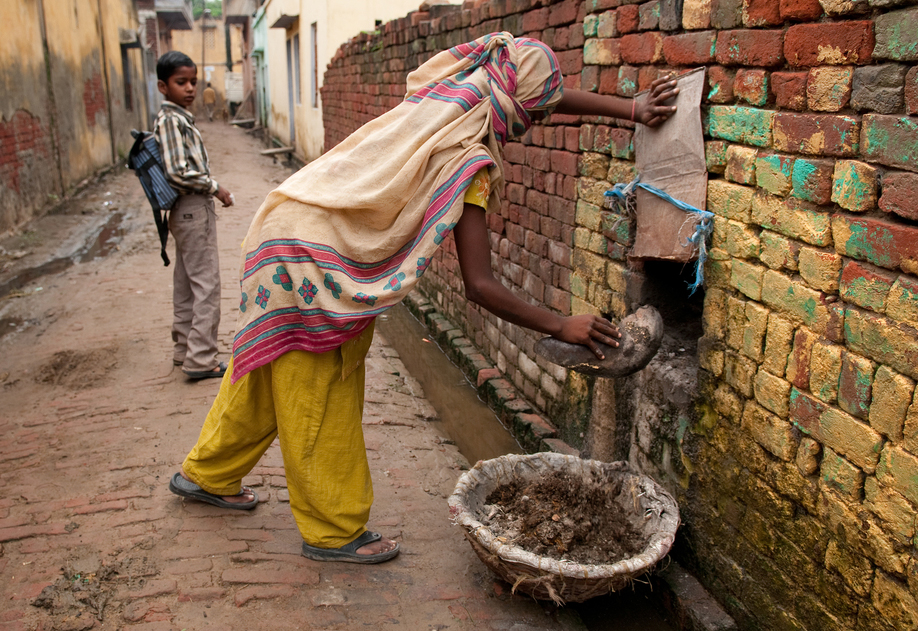Sir — The death of 110 manual scavengers in 2019 owing to asphyxia while cleaning sewers and septic tanks — as reported by the Union minister for social justice and empowerment, Ramdas Athawale, in Parliament — reveals the utter callousness and insensitivity of the government towards these people (“Pits of hell”, Feb 14). It is absolutely inexcusable that human beings are still being made to clean sewer lines and septic tanks manually, that too without safety gears. Athawale said that 62,904 manual scavengers still operate owing to the existence of insanitary latrines that need to be cleaned manually.
It is striking that a Union minister brazenly rattles out such numbers when there exist many laws in the country that prohibit not only the construction and maintenance of dry latrines but also the employment of people for the purpose of hazardous cleaning of sewers and septic tanks. Such acts are punishable by law. If lawmakers are themselves careless about the effective implementation of laws — primarily to protect their vote banks — little can be expected of the common people, especially those who cannot afford anything better.
Jahar Saha,
Calcutta
Sir — It is shameful that not only has India failed at eradicating the scourge of manual scavenging but it has also been unable to provide these people with the safety gear and other technology that can be life-saving. While above 50 per cent of India’s toilet users still rely on septic tanks and leach pits for waste disposal, little attention is paid to safe design and maintenance norms for these.
Yet, in 2018 half the funds allocated to the Swachh Bharat Mission remained unused. These figures tell a shocking story.
Dipanwita Biswas,
Calcutta
Kept out
Sir — It is good to know that schoolteachers have been forbidden to carry their mobile phones into the examination venue during the Madhyamik examinations (“Madhyamik cellphone curb on teachers”, Feb 11). Earlier, teachers had to deposit their switched off devices with the head of the institution before the commencement of the examination. In spite of this, question papers surfaced on social media on several days last year. Even a novel method of unpacking question papers before the students in the examination hall could not check the leak of question papers. This is an alarming trend. The examination process depends on a wide range of relay actions. Negligence and apathy at any level of this process can defeat the purpose of the exams.
Besides putting a ban on mobile phones, dishonest staff must be held accountable for their actions and penalized. The state board must be on its toes to ensure the confidentiality of question papers. Otherwise such malpractices cannot be prevented and people’s faith in the education system cannot be restored.
Ratan Kumar Halder,
Calcutta
Sir — It is heartening that exceptions are not being made as far as teachers’ use of mobile phones during examinations are concerned. Mobile phones in exam halls not only pose the threat of a leak but can also be distracting. If teachers are engrossed in their phones, they could fail to catch students who may be cheating. They might also be late in handing out spare answer sheets or even miss the deadline for the exam.
Chandrima Basu,
Bolpur
Tasting victory
Sir — If victory can be tasted, it must taste like biryani. Reports show that the sale of biryani rose after the victory of the Aam Aadmi Party in the Delhi elections. While few things are as delicious as biryani, its Islamic origins make it a dish that is reviled by politicians across party lines — Yogi Adityanath accused Arvind Kejriwal of distributing biryani to protesters at Shaheen Bagh, Priyanka Gandhi accused Narendra Modi of eating this dish in Pakistan and Modi accused the UPA government of the same. This shows that you can hate biryani or you can love it, but you cannot ignore it.
Abhirupa Das,
Calcutta










